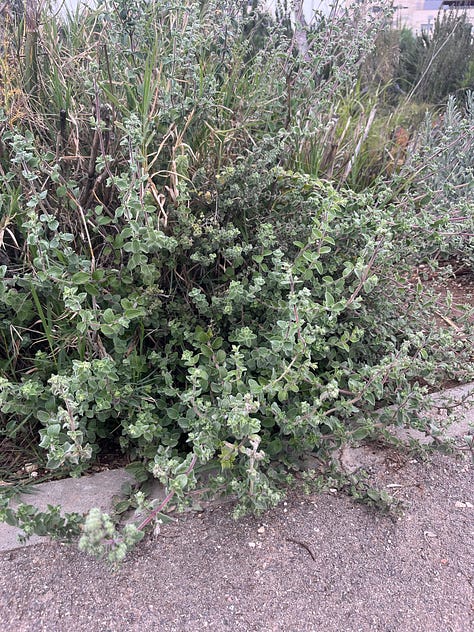How Often Do You Check the News?
Exchange drama for connection in 4 simple steps.

Dear Healthy Jew,
On Monday night, a booby-trapped something in Gaza exploded, killing around two dozen Israeli soldiers.
That’s all I know, because I haven’t read the news since Sunday. Perhaps I’ll know more facts by the time you read this, because I’ll catch up again today (Wednesday).
In the meantime, the dearth of details helps me connect with the tragedy, because there’s less noise to cover up the pain.
Distracted by Drama
Once reason I dial down news consumption is the shared bias of every news outlet (and social media platform): drama.
The job of all journalists, from the award-winning Atlantic writer to that cool mom on Instagram picking eggplants from her windowsill, is to remove us from our inner lives so we’ll know all the terrible and fantastic things happening “out there.”
They have a good point. It’s important to know what’s going on around us; ignoring the world is cruel and doesn’t work.
But too much news pulls away our attention and emotions, and pushes us into extreme reactivity.
In the thrall of “what’s new,” we’re living other peoples’ lives and tragedies, never stopping to just be ourselves.
When we ingest more information than we can internalize, we become overwhelmed and detached. Our minds and feelings can’t digest the whole world’s problems.
So how much “checking the news” is helpful and productive? There’s no hard answer, but chances are it’s far less than our natural tendencies.
Personally, I notice an allergic reaction of sorts when I get too involved, especially during intense times like these. I feel emptied out, unfocused, and a pervasive sense of shame.
Letting Go of News
There are lots of strategies to regulate news consumption. I’m not aware of any perfect formula, and I doubt there is one, because no two people have the same personality and circumstances. What’s important is that we use news to connect to the world and help us care - not to disconnect and become desensitized.
Many people practice daily digital fasting, not consuming (another word for eating) any online content for 12 hours every night - just like they’ll fast from food for 12 hours every night (as I suggested recently). Both fasts are about stopping consumption to digest fear, stress, and anxiety, allowing our body and spirit to rest, rejuvenate, and reset.
Another great tactic is to leave all digital devices out of the bedroom, physically distancing from the outside world in that personal space.
Other suggestions include limiting screen time with or without all sorts of apps, turning off phone notifications, and only browsing while sitting at the computer.
In my own recent experience, I’m finding that twice a week is enough to catch up on the latest tragedies and what the sundry politicians and commentators are pontificating about them. So I read the news on Sunday and Wednesday - the days I send you Healthy Jew - when I’m online sharing and posting about that day’s article. By the way, you too can share Healthy Jew.
4 Steps to Build Healthy Jew Habits
If you have no clue where to start, or are always ping-ponging from one extreme (“only printed weekend newspapers”) to the other (checking Facebook every 3 minutes), try this simple 4-step process.
Explore. In the beginning of the week, pick one new strategy to try for that week. It could be one of the things I mentioned or anything else you think might work. It’s just for a week - you can do it!
Listen. At the end of the week, check if you made it through the week. If you did, ask yourself if you found it helpful.
Choose. You didn’t like it? No problem! Go back to step 1 and try something new. You did like it? Great! Do it for another week. Two things will happen every day: you’ll get another day of freedom, and the good habit grows a bit stronger.
Return. Whoops, you scrolled mindlessly on a news-free day or in a phone-free place. No problem! You have a groove that works for you. Jump right back in at stage 3. When? Right now.
These steps work for any area of life that you’d like to build Healthy Jewish habits. Explore with action - not analyzing. Listen to the results. If you like them, choose the action again. If you slip, you have a healthy habit to return to.
Before you go, let us know: How do you find wellness and balance in news? If you feel stuck, try the 4 steps and tell us how it goes. Either respond to this email, or, even better, comment directly with this button:
Finally, if you live in or near Ramat Bet Shemesh, join me tomorrow afternoon (probably 3:30-5:30) for a special Tu Beshvat foraging walk. We’ll probably walk in the Yarmut Park because the surrounding countryside will still be muddy.
The price is 60 NIS for adults (18+), 30 for kids (5+). Feel free to ask for a discount. For more details, join this Whatsapp group. (If that’s not possible, reply to this email today and I’ll keep you updated.)
When the world is saying that Israel is “the land that eats its inhabitants,” we’ll reply with Yehoshua and Calev: “The land is very, very good.”



Thank you for reading Healthy Jew.
Here are 2 great paths to continue the journey:
Also check out this intro and index to explore hundreds of posts about our 3 Healthy Jew topics: Wellness with Wisdom, Land of Life (Israel), and Sensible Spirituality.
Finally, always feel free to reach out here with any comments, questions, or complaints:
I look forward to hearing from you!
Be well,
Rabbi Shmuel Chaim Naiman






